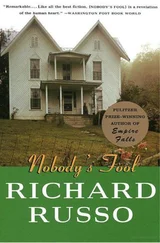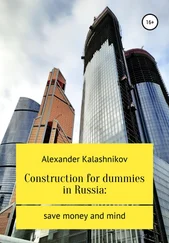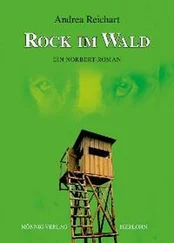I nodded. “That’s all I ask for now,” I said. “Time to search for logs or historical records that point us to a place to go, and time for Cardenas to explore the feasibility of taking the alien ship with us.” I paused, thinking about whether or not I should suggest that, with or without the alien ship, it would be good for us to end our isolated wanderings, connect with real civilization again, but I thought it might actually scare some of them off. “That’s all,” I repeated. “No commitment to a course of action, just the time to explore the alternatives.”
No one else said anything more. When we finally took the vote, it wasn’t as close as I’d expected. The Planning Committee gave us the time.
Iwas taken aback when I saw Father Veronica the next day. A dark, despairing air surrounded her, the darkness haunting her eyes, even the way she carried herself. I had never seen this side of her, never suspected it existed. She was seated on the top step leading to the apse, leaning against the pulpit at which she’d spoken during Casterman’s funeral Mass. As I approached she tried to smile, but the effort was weak and unsuccessful.
“What’s wrong?”
She rose to her feet, her hands trembling slightly. “I am overcome by a sense of despair… and I can’t tell you why. Two or three times a year, it happens. Usually I disappear for a few days, go into isolation until it passes. Bishop Soldano is aware of what happens, although he doesn’t understand it. He accommodates me. I would be gone today, but we’d agreed to meet. Too much is happening now anyway. I can’t disappear this time.”
I nodded, remembering. “You were gone when I was released from prison. Father George said no one knew where you were.”
She looked up into the darkness of the upper vaulting as if searching for solace she knew she wouldn’t find. “Today, this place makes my mood even more foul.” She turned back to me. “We’ll go to my quarters,” she said. “And you can tell me what happened in the Planning Committee.”
Her quarters were located two levels below the cathedral. The outer two rooms were for church duties—meeting with people, informal confessions, prayer; the interior rooms were her private quarters.
Father Veronica directed me to sit in one of two chairs partially facing each other, a small table between them. I did; then she withdrew to the interior rooms. The room I was in was small and dark and comfortable. On one wall was a bookshelf constructed of real wood and filled with bound volumes, most of which appeared to be quite old. Another wall was draped with a dark tapestry picturing the Creation.
She returned a few minutes later with a cup and a carafe filled with coffee. She sat in the other chair and poured coffee for me. I drank some and looked at her in surprise.
“Good, isn’t it?” she said.
I nodded. “How?”
“Your friend Pär was kind enough to provide me with a small supply.”
I would have expected her to smile at some point in this brief conversation about the coffee, at least with her eyes, but she didn’t, and I began to truly appreciate the depth of her despair.
“Do you want me to leave?” I asked. “Leave you alone?”
She shook her head. “I want to hear about the Planning Committee session.”
I related to her in some detail what had occurred, including my own assessments of the dynamics, the tensions, and the uncertainties. When I had finished, she appeared to be even more distressed.
“What is it?” I asked.
“You really want to take that ship with us?”
“Yes. You understand why, don’t you?”
She nodded. “Yes. It’s perfectly rational. But I’m still uncomfortable with the idea. I would prefer to leave it behind, and never see it again.” She sighed heavily. “There’s something else.” But she didn’t go on.
“What?”
“I don’t know, Bartolomeo. I don’t know if I should say anything. I’m not sure I have the right to say anything.”
“You can say anything you want to me.”
“It has nothing to do with you, Bartolomeo. It’s me, and the Church.”
She didn’t say or do anything for a minute; then she abruptly stood and went into the other room, sealing the door behind her.
I assumed she wanted me to stay, but how could I be sure? If she’d wanted me to leave, she would presumably have asked me to do so. How could I know what she wanted?
I stayed. The room was quiet, a hushed silence that seemed to have substance. I drank my coffee, poured myself a second cup. I got up and walked over to the bookcase, studied the ancient volumes: Vetera Analecta. No author. Meditations, by Marcus Aurelius Antoninus. Summa Theologica, by Saint Thomas Aquinas. Black Commentaries, by Straphe. Confessions, by Saint Augustine. Books in French and Spanish, a couple of other languages I didn’t recognize. Even alphabets that were unfamiliar. None of the names meant anything to me. I was tempted to pull one off the shelf and open it, but I didn’t know what Father Veronica’s reaction would be if she were to return and see me with one of the books in my hands. Were they holy texts not to be touched by unbelievers?
I returned to my seat, drank more coffee. As time passed, I grew increasingly uncomfortable, afraid I had misunderstood and was expected to leave. Twice I got to my feet, intending to leave, but both times I sat again to wait a while longer.
I was about to get up for the third time, when the door slid open and Father Veronica walked back into the room. She did not sit down, but stood in front of the tapestry.
“The bishop never mentioned the Church’s own historical records.” It was more statement than question, but I knew she expected a response from me.
I hesitated, sensing the implications of what she’d just said. “No,” I replied.
She nodded slowly, as though still thinking, still trying to decide something. “They are quite extensive,” she said. “And detailed. They go back hundreds of years…” Her voice trailed off.
“How detailed?” I asked. I could feel my heart rate increasing.
“They include much that would have been in the ship’s logs.”
“Including star coordinates.”
“Yes.”
He had said nothing. The bishop had sat there as we discussed trying to find lost or damaged records, any surviving remnants, and had said nothing about the Church’s own substantial and intact records.
“Nothing would be as simple as you might imagine,” Father Veronica said. She finally sat again in the chair, glancing at the books, then back at me. “There is no indexing of any kind. And they are very extensive. I have read little of them. The bishop is probably most familiar with them, but even he has read only a small portion. Trying to find very specific information, which is what you want, would be extremely difficult.”
I hesitated, watching her. My thoughts were jumping frantically, barely under control. “Are you willing to tell the Executive Council about the records? I know this must be hard for you, and it’s a bad time, you’re having a hard time—”
“If necessary,” she said, cutting me off and closing her eyes for a moment. “But could you not tell the council about them yourself?”
“Sure. But you don’t understand the dynamics. With the bishop there fighting me all the way, everything would be changed. It’s not so much that they wouldn’t believe me concerning the records’ existence; but the bishop would have a good chance of convincing them that the records are unimportant, would not be useful, and would in fact not have the kind of information you say they have.” I paused. “If you tell the council, he won’t be able to do that.”
Читать дальше












